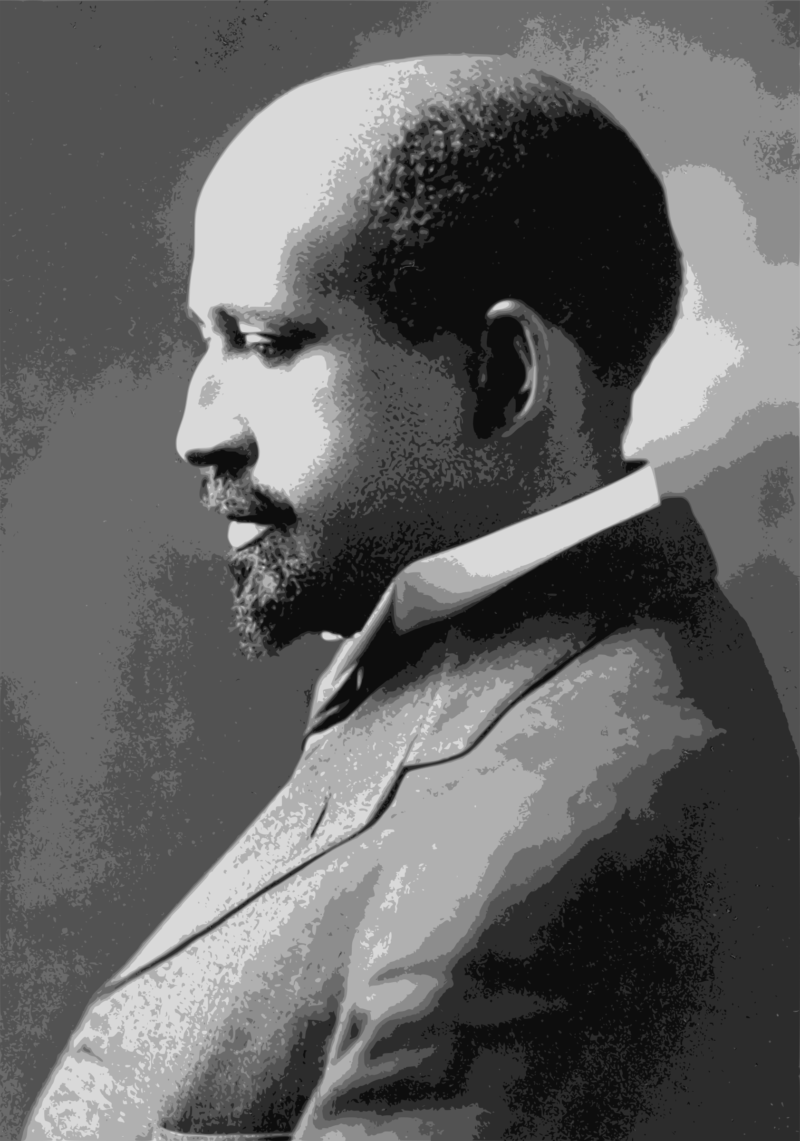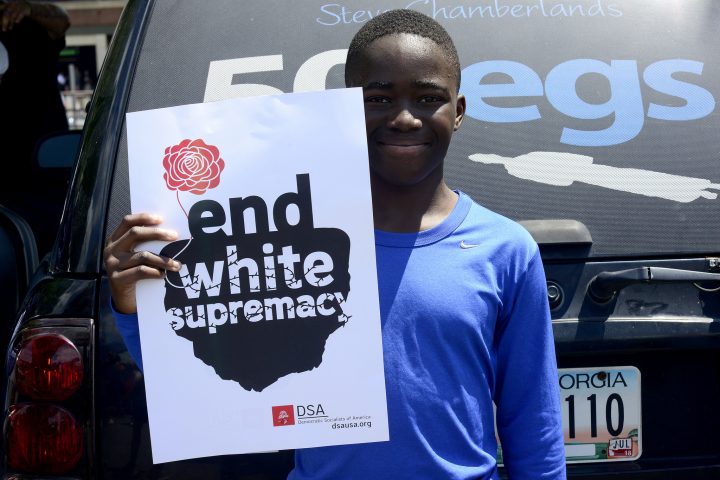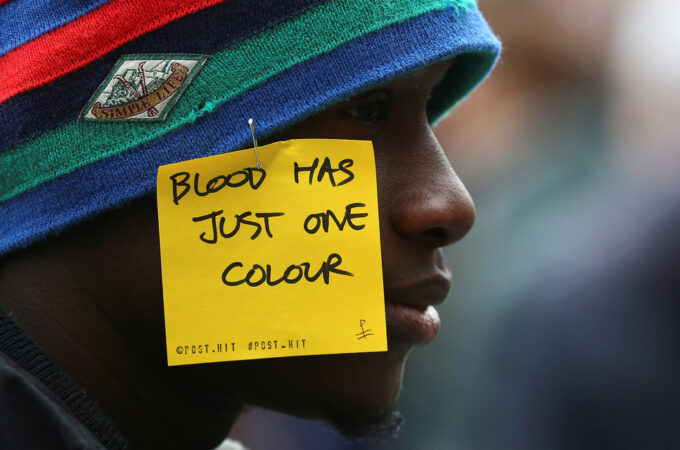What’s driving today’s polarization around race? And what’s the answer?
Two opposite answers—two narratives, if you will—are unfolding. One emphasizes systemic injustice and institutional racism. It views the problems black people face as sourced outside their community and attributes these problems to historic slavery and pervasive, systemic white oppression.
The other narrative emphasizes the importance of personal responsibility; evil is rooted in human hearts. Yes, white racism persists, but much bigger challenges confront the black community, challenges that can be overcome by the actions and decisions of black people in ways that are not ultimately dependent on the actions of white people.
Here’s the latest in our current series, A Dialogue on Racism and Christian Racial Reconciliation
~
[This is part 2 of Dannae’s response. Go here to read part 1.]

All this adds up to demonstrate no genuine engagement with any particular critical theories or theorists, nor with the array of wildly diverse writers who espouse social criticism of American and Evangelical history. Because of this, your charges of atheism and differing anthropology are not so much incorrect as they are simply a sweeping generalization, a religious bypassing of generations of testimony and scholarship that have begun to reshape American consciences. Of course, there are legitimate criticisms to be made, but we do not hear you making them. This is also true of your comments regarding non-Christians like Du Bois, DiAngelo, and Coates, and also true of your engagement with Christians like Keller and Morrison.
DuBois, for example, made for a terrible Socialist and Communist, as demonstrated by his and their mutual disdain of each other in his own lifetime. What’s more, Du Bois’ entire intellectual and political work was in an era of unashamed and unremitting White Supremacy. This is why DuBois founded the NAACP, as a political alternative to Socialism, Communism, and Booker T. Washington’s accommodation to White Supremacy. To say Du Bois was “sympathetic to Marxist theory” is contextually the same as saying Du Bois realized American capitalism and White Supremacy were one and the same monster still legally oppressing Blacks. And Du Bois’ atheism is famously tied to the same social criticism he made of American churches, namely, blind allegiance to American White Supremacy. Sympathy to Marxism was mere desperation, and yet he ultimately rejected it. So when Du Bois is criticized on these grounds, it sounds at best like unawareness of the history of American policy and religion, and at worst like excusing White Supremacy. Your critique of Du Bois extracts him from historical context, and functionally treats him through a revisionist lens, though of course we don’t think that’s your intention.
Similar problems of ahistoricism mark your engagement with the other authors as well. The problem is most demonstrable in your comment:
The contention that ‘whiteness’ was an invention of white slaveholders to justify the slavery of black Africans seems plausible…And who ‘created whiteness’ in modern times?”
Plausible? Who created Whiteness? Are you uncertain about the extant records of American White Supremacy, shot through the Mid-Atlantic Slave Trade, to the Revolution and Declaration, to the Constitution, to the Civil War, to Reconstruction and Jim Crow, to redlining, mass criminalization, and over-policing? Our country’s most vulnerable populations have always been crying out for reform and justice, but the only political game in town was capitalism led by almost entirely good, White Christians. Unless you’re espousing paleo-confederacy, these comments reflect a lack of knowledge regarding our plain-as-day history. We cannot even begin to discuss the sociological terms embraced by people as diverse as Coates and Keller, until we have a shared view of the historical record of Evangelicalism’s lock-step partnership with White Supremacy. So again, we’re forced to ask, who are you? Who is your people? How do you pronounce it? Shibboleth, or sibboleth?
Next, we strongly disagree that “hyper-communitarianism” is even remotely a significant problem in America, and this also connects to the proper historical interpretation of our Declaration and Constitution. At the very most, a communal or collectivist ethic is burgeoning as a desperate reaction against the dehumanizing aspects of individualism and capitalism. Neither communism, nor Marxism, nor social critical theories have lifted a pinky finger to accomplish slavery, Jim Crow, Segregation, lynchings, massacres, etc. Only American Liberalism has done that, because only American Liberalism has ever held true power in America, largely under “Christian” leadership. One of the glorious aspects of our nation’s heritage is the experiment of enshrining inalienable rights to our citizens, rights that our government cannot infringe. But our Founding Fathers near unanimously restricted these human rights from Blacks and Natives, because they believed them to be sub-human. This was encoded in both pre and post Revolution policies, as well as in the Constitution itself. It is a baffling and blasphemous contradiction that cannot be whitewashed as if they were just “men of their times.” The testimony of the Black community has always condemned the slavery that our federal government and our Founding Fathers personally practiced. Scholars have argued that individualism is exactly the result of the moral hypocrisy of American doctrine that fought and bled for inalienable human rights, but then alienated those rights from People of Color.
Because of these apparent contradictions and mischaracterizations, we find your use of “shibboleth” to be ironic. In a discussion about how Christians ought to advocate for the oppressed and suffering, you invoked an ancient, ethno-linguistic marker in a way that makes White folks seem like victims of “systemic injustice.” This is especially concerning because the charge of systemic racism is to bring attention to the horrors perpetrated upon actual oppressed peoples, most often at the hands of White Christians. In response, you are essentially saying, “But naming this sin is going to hurt feelings and reputations.” It would be quite the same, if in response to the shepherd pursuing the one lost sheep, the other 99 begrudged him, “What about us?” That was, in fact, quite the point of Jesus’ parables, to prick the consciences of the cultural First begrudging his love of the minoritized Last, and the ethno-centric Early Workers begrudging the Master’s economic generosity to the Late Comers. Nevertheless, Christian People of Color do not want white folks’ lives to be ruined by acknowledging our national sins. Instead, the great hope and joy for countless Christian leaders in this season is that repentance leads to reconciliation and restoration, and the Black community is still offering us this reconciliation.
A gospel worldview against American White Supremacy and for reform
While we are more than glad to acknowledge our mutual love of Christ crucified and resurrected for the redemption of souls, societies, and all creation, we would hope you  take seriously that the arguments presented in your last two letters seem to blame shift the sins of our nation. Blame shifting is a genuine threat to the sanctification of White Evangelicals, who continue to live in spaces and cultures historically and explicitly designed for segregation, protection of White ownership, and criminalization of minority citizens and asylum seekers. This is especially urgent, as we are in an unprecedented season where White Evangelicals long to be advocates and are exploring their own embeddedness in the heritage of White Supremacy. Ideas have consequences, and we are concerned the consequences of your project will harm the movement for justice.
take seriously that the arguments presented in your last two letters seem to blame shift the sins of our nation. Blame shifting is a genuine threat to the sanctification of White Evangelicals, who continue to live in spaces and cultures historically and explicitly designed for segregation, protection of White ownership, and criminalization of minority citizens and asylum seekers. This is especially urgent, as we are in an unprecedented season where White Evangelicals long to be advocates and are exploring their own embeddedness in the heritage of White Supremacy. Ideas have consequences, and we are concerned the consequences of your project will harm the movement for justice.
It’s the gospel that allows us to value aspects of critical theory even as it allows us to value aspects of Classical Liberalism. And it’s the kingdom of God that calls us to make substantive critiques of all ideologies, including Marxism and Liberalism. But since it is unequivocally Liberalism that has shaped American culture, policy, and injustice, we view it as the frontlines of the fight for justice for people of color. Consequently, we view most Evangelical criticism of critical theory and BLM as the same Fundamentalism of a century ago. And not coincidentally, that Fundamentalism rose up in the same way, claiming to have Christian convictions while also silencing the call for equality for People of Color. Carl Henry, Mark Noll, and Ron Sider have made this point forcefully in their own ways. But it is our current generation of scholars, who are knocking us free from our contemporary amnesia, and reminding us what has always been the case: American Fundamentalism is the main force that has perpetuated segregation to this day, and it is the same force currently trying to silence the cries for reform. We pray daily that this Fundamentalism fails, and the gospel prevails.
A question for White Evangelicalism
You emphasize that we have a shared desire for “racial reconciliation.” Our churches are ethnically segregated and many white pastors and Christians have little to no exposure to the Black community, much less to Black church history and Black theology. This is problematic given that the Black church has been the main chorus calling for Christian non-violence as well as massive reforms to our nation’s White Supremacy. Can you take time to explain what racial reconciliation would look like for White Evangelicals? How do you define “racial reconciliation” and what practically would you suggest pastors do to engage their congregations in this work?
Appreciatively, Dennae and Andrew






